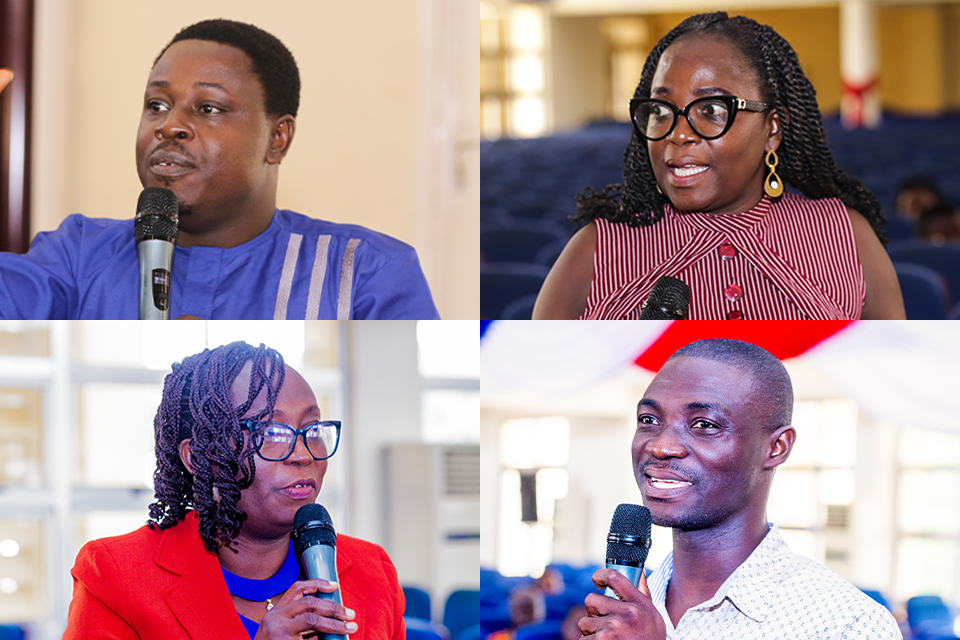RAC-UEW Presents Draft Research Agenda for Future Development
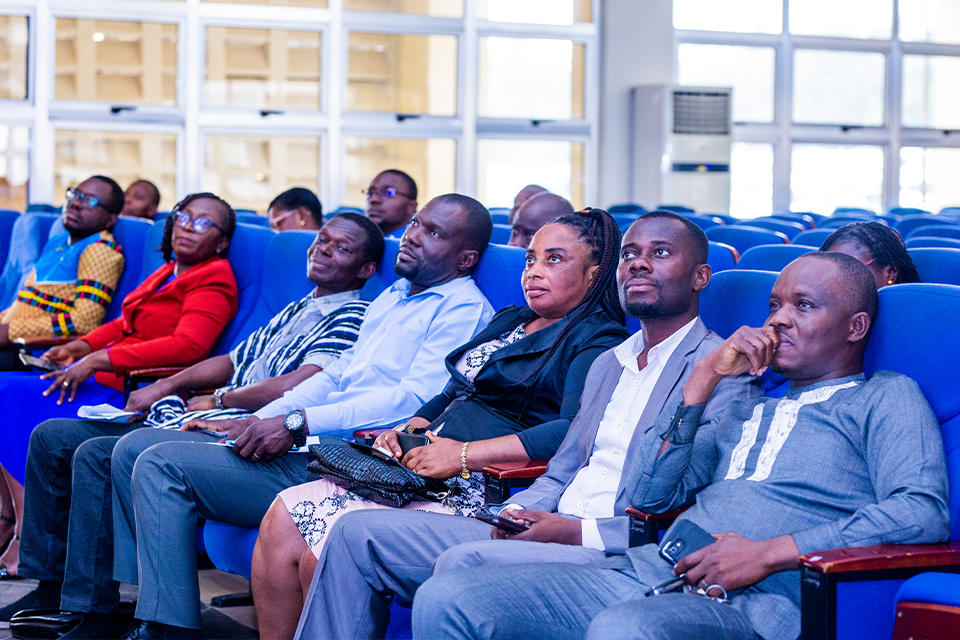
The Research Agenda Committee (RAC) of the University of Education, Winneba (UEW) has taken a significant step towards enhancing the university's global engagement, and adaptability to research, innovation, and development through a dissemination seminar.
The RAC presented its preliminary research agenda on 13th and 14th August, 2024, at the Jophus Anamuah-Mensah Conference Centre and the Video Conference Room at the Ajumako Campus, respectively.
The draft agenda, under the theme “Enhancing Versatility and Internationalisation through Research, Innovation, and Development,” marks a pivotal moment in UEW's quest to solidify its position as a leader in academic excellence and global relevance.
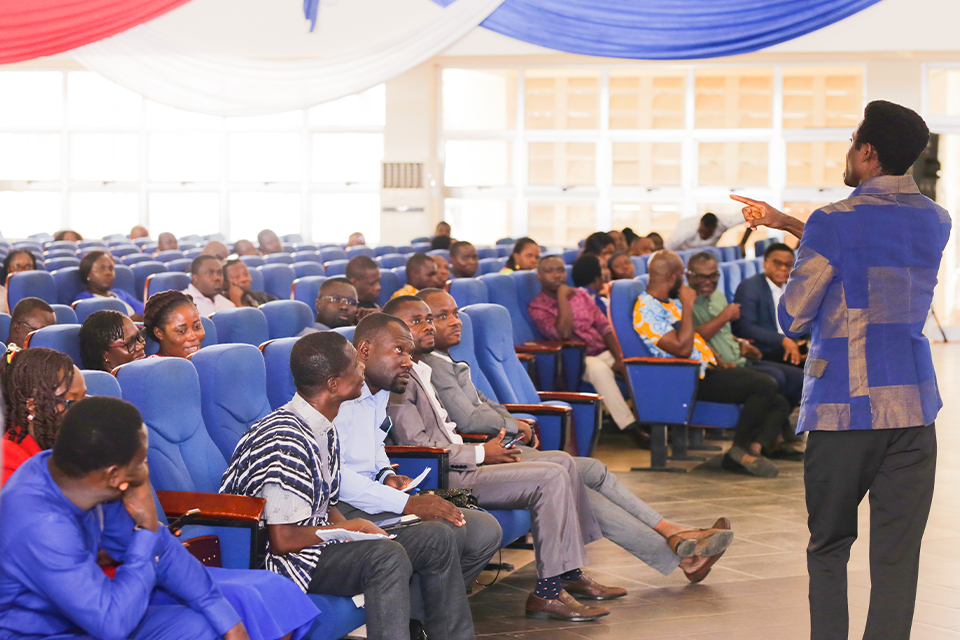
The Committee's dissemination efforts are designed to actively invite input and suggestions, ensuring a collaborative approach to shaping the agenda. This plan highlights five strategic areas of focus: Innovation, Technology, and Entrepreneurship; Education and Development; Policy, Leadership, Governance, and Infrastructure; Culture, Diversity, Family, and Communication; and Health, Environment, Safety, and Sustainability. These pillars are critical to driving forward UEW's vision of becoming a leader in global research and innovation.
Established by UEW’s management in April, the RAC was tasked with recording publications, identifying research interests, securing funding sources, and developing a comprehensive research plan for the next five years.
The draft agenda highlights several ambitious goals, including integrating postgraduate students into research teams, enhancing research seminars, and instituting annual monitoring and evaluation committees to track progress.
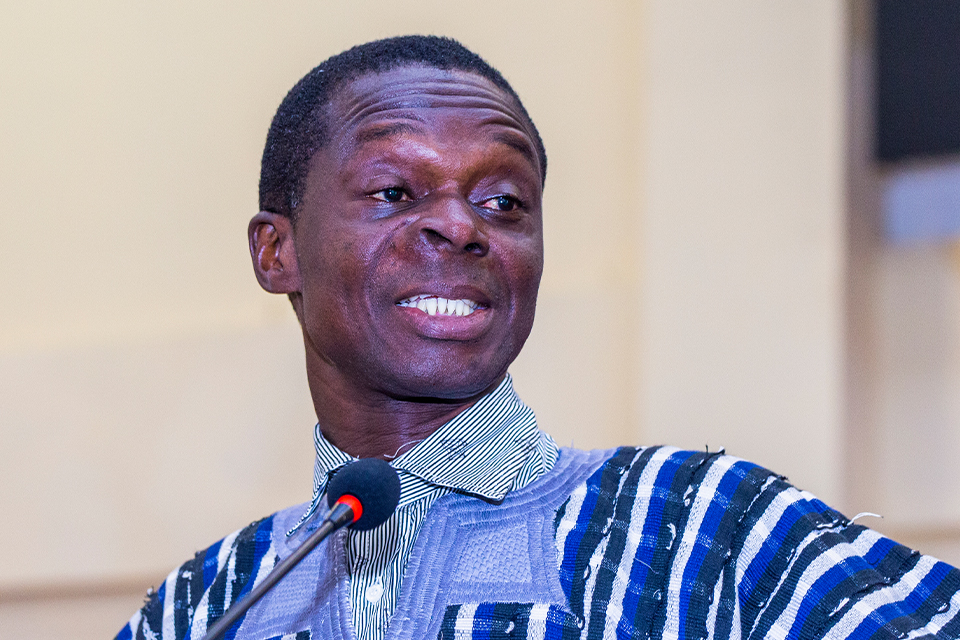
Prof. Charles Annobil, a RAC-UEW member, chaired the dissemination seminar on behalf of Prof. Kofi Adu-Boahen, the chairman of RAC-UEW.
In his address, Prof. Annobil underscored the importance of aligning the research agenda with the university’s strategic objectives, urging faculty members to contribute actively to finalising the agenda. “We look forward to your valuable contributions in developing a research agenda that meets international standards,” he remarked.
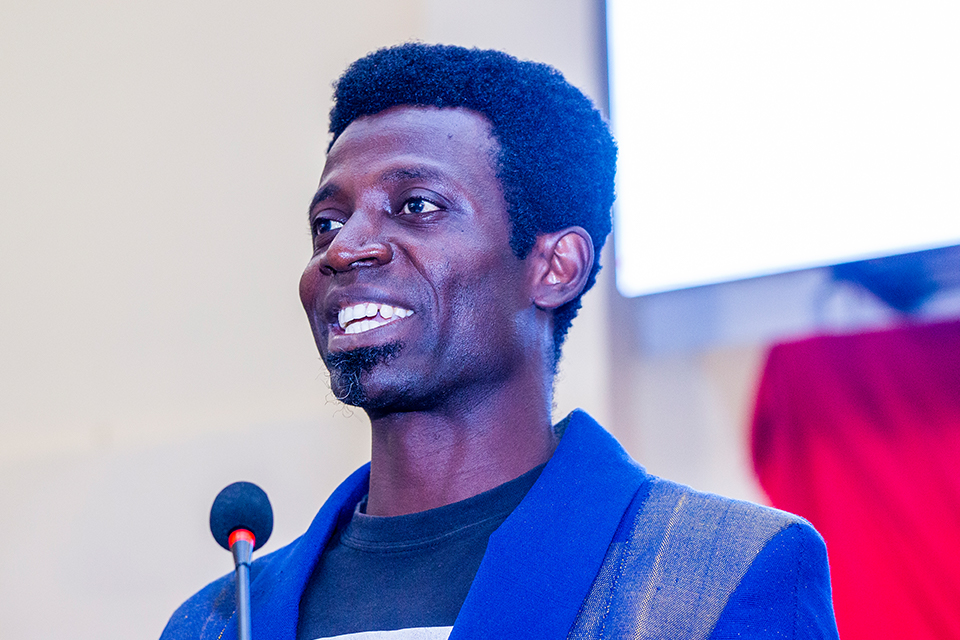
Prof. Osuanyi Quaicoo Essel, also a member of RAC-UEW, delivered an insightful presentation on the draft report. He emphasised the significance of capacity building, fostering a robust research culture, securing funding, and promoting collaboration and transdisciplinary research. He noted that the committee had drawn inspiration from best practices at other universities, ensuring that the proposed agenda aligns with international standards in research and publication.
“This draft agenda is open for feedback and suggestions to finalise a comprehensive research agenda that aligns with the university's strategic plan and national development goals. Our work is ongoing, and we are presenting this for your input. Your contributions are crucial to the overall success of the agenda. This is not a finished product; it is a work in progress,” Prof. Essel stated.
He further outlined the five thematic areas identified for the university’s five-year development plan, stressing the importance of teamwork and skill development. “Collaboration is essential. It is the key term and the key to our success. We must empower ourselves for our own benefit,” Prof. Essel concluded.
The RAC’s draft research agenda is a forward-thinking blueprint that aims to propel UEW into a future where research, innovation, and global engagement are at the forefront of the university’s mission. As the agenda undergoes refinement, it promises to set the stage for UEW to become a beacon of academic excellence, not only in Ghana but on the international stage.
